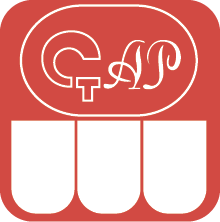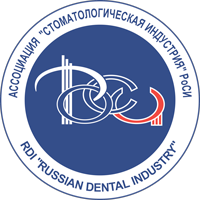DOI:
10.37988/1811-153X_2023_4_108Indicators of bone homeostasis and microcirculatory parameters in the postoperative period of dental implantation using different types of navigation templates in patients with type I diabetes
Downloads
Abstract
The development of new methods and techniques of dental implants placement with less traumatization of oral tissues narrows the contraindications to orthopedic correction in patients with complex somatic pathology, which includes severe diabetes. The aim of the study is to compare the parameters of bone and microcirculatory homeostasis in diabetic patients using different types of navigational surgical templates and dental implantation techniques.Materials and methods.
One-stage dental implantation (with prosthetics on the day of surgery according to the type "all on 4" or "all on 6") was performed in 41 patients with severe type 1 diabetes: 21 patients made up Group I (main group) and 20 patients were assigned to group II (control). In group I the implantation was performed using a virtually modeled collapsible navigation template (patent № 2796749, effective from 13.09.2022) without peeling of the mucosal-adcostal flaps according to the developed method (patent 2794843, effective from 01.08.2022). In the control group the implantation was performed according to the standard protocol, with suturing and using the Malo template. Before implantation, on the 1st, 3rd, 10th and 30th days after implantation the dynamics of microcirculatory parameters in the implant area was evaluated. Bone homeostasis control was carried out before the operation, in 1, 2 and 3 months according to the CBCT data, as well as by the dynamics of tartrate-resistant acidic (TRAP5b) and alkaline phosphatase activity in the oral fluid.
Results.
The use of the new method of dental implantation led to the activation of microcirculation in the blood flow zone, which was confirmed by the increase of perfusion by 47.3%, the coefficient of specific oxygen consumption (U) by 32.6% and the efficiency of microcirculation almost 3 times with the decrease of perfusion oxygen saturation index (SOm) by 2 times, which was not observed in the patients of the control group. Improvement of microcirculatory parameters in group I patients was accompanied by faster positive dynamics of bone homeostasis compared to group II patients. In group I the increased level of TRAP5b remained during the 1st month after surgery, and in group II patients by the end of the 2nd month it remained 16—20% higher than the initial observation values, which indicated the prevalence of osteoclastic processes. In 3 months after the placement of dental implants the bone tissue density according to the Hounsfield scale in group I increased in comparison with the initial values in men by 19.0%, in women — by 14.1%. In group II even 3 months after implantation there was no restoration of bone density to the initial level.
Conclusion.
The use of a new collapsible navigation template and surgery without peeling off the mucosal-adcostal flap allows preserving the microcirculatory channel and enables the organism to fully use the regenerative potential aimed at activation of oxygen exchange and increasing the efficiency of metabolism in tissues.
Key words:
dental implantation, microcirculation, bone homeostasis, navigational surgical template, diabetes, osseointegrationFor Citation
[1]
Kuznetsov M.V., Sofronov M.V., Bulanov S.I., Zarubina E.G., Lysov D.N. Indicators of bone homeostasis and microcirculatory parameters in the postoperative period of dental implantation using different types of navigation templates in patients with type I diabetes. Clinical Dentistry (Russia). 2024; 26 (4): 108—115. DOI: 10.37988/1811-153X_2023_4_108
References
- Singh K., Rao J., Afsheen T., Tiwari B. Survival rate of dental implant placement by conventional or flapless surgery in controlled type 2 diabetes mellitus patients: A systematic review. Indian J Dent Res. 2019; 30 (4): 600—611. PMID: 31745060
- Wagner J., Spille J.H., Wiltfang J., Naujokat H. Systematic review on diabetes mellitus and dental implants: an update. Int J Implant Dent. 2022; 8 (1): 1. PMID: 34978649
- Schimmel M., Srinivasan M., McKenna G., Müller F. Effect of advanced age and/or systemic medical conditions on dental implant survival: A systematic review and meta-analysis. Clin Oral Implants Res. 2018; 29 Suppl 16: 311—330. PMID: 30328186
- Tarasenko N.A. Diabetes: reality, forecasts, prevention. Modern Problems of Science and Education. 2017; 6: 34 (In Russian). eLIBRARY ID: 32390314
- Ignatiev S.V. Removable prosthetics of patients with diabetes mellitus based on the parameters of local cellular immunity of the oral mucosa: master’s thesis. Vladivostok: Far eastern Federal University, 2021. 117 p. (In Russian).
- Polushkina N.A., Vecherkina Zh.V., Primacheva N.V., Smolina A.A. Evaluation of orthopedic treatment with removable dentures in patients with periodontal pathology on the background of diabetes mellitus. Journal of New Medical Technologies, EEdition. 2022; 1: 25—30 (In Russian). eLIBRARY ID: 48052333
- Gorobets S.M., Romanenko I.G., Dzhereley A.A., Bobkova C.A., Kryuchkov D.Y., Gorobets O.V. Risk factors inflammatory complication of dental implantation. Tavricheskiy Mediko-Biologicheskiy Vestnik. 2017; 2-1: 208—214 (In Russian). eLIBRARY ID: 29900435
- Lepilin A.V., Zakharova N.B., Shalina M.Y., Fishchev S.B., Sevastyanov A.V. Prophylaxis of inflammatory complications after an immediate dental implant surgery. Parodontologiya. 2019; 3: 236—242 (In Russian). eLIBRARY ID: 40548064
- Tuneva N.A., Bogacheva N.V., Tuneva I.O. Problems of dental implantation. Medical Newsletter of Vyatka. 2019; 2 (62): 86—93 (In Russian). eLIBRARY ID: 38213976
- Bell C.K., Sahl E.F., Kim Y.J., Rice D.D. Accuracy of implants placed with surgical guides: Thermoplastic versus 3D printed. Int J Periodontics Restorative Dent. 2018; 38 (1): 113—119. PMID: 29240212
- Grishin P.G., Kalinnikova E.A., Savransky F.Z., Chigarina S.E., Khaikin M.B. The influence of the macro- and microstructure of the implant surface on the processes of osseointegration and stabilization. Medical Newsletter of Vyatka. 2020; 4 (68): 44—48 (In Russian). eLIBRARY ID: 44292592
- Tovmasjan D.R., Panin A.M., Mkrtumjan A.M., Kozlova M.V. Dental implants as Treatment Option in Patients With Osteopenic Syndrome and Type II Diabetes. Saratov Journal of Medical Scientific Research. 2009; 2: 242—244 (In Russian). eLIBRARY ID: 12516064
- Rozhko P.D., Denga O.V., Verbitskaya T.G. Study of Col1A1—1997G/T, MMP1-1607insG, MMP9 A-8202G, TIMP1C536T genes polymorphism in patients with 2 type diabetes planned for dental implantation. Colloquium-Journal. 2020; 19-1 (71): 27—30 (In Russian). eLIBRARY ID: 43845236
- Tarasenko S.V., Zagorsky S.V. Use of navigation surgical templates for dental implantation in patients with partial secondary adentia. Clinical Dentistry (Russia). 2018; 4 (88): 18—21 (In Russian). eLIBRARY ID: 36517608
- Kondratjeva A.A. Treatment of patients with completely edentulous jaws using dental implants following the all-on-4 protocol. Vestnik NovSU. 2016; 1 (92): 77—80 (In Russian). eLIBRARY ID: 26084020
- Maló P., Rangert B., Nobre M. “All-on-Four” immediate-function concept with Brånemark System implants for completely edentulous mandibles: a retrospective clinical study. Clin Implant Dent Relat Res. 2003; 5 Suppl 1: 2—9. PMID: 12691645
- Kouadio A.A., Jordana F., Koffi N.J., Le Bars P., Soueidan A. The use of laser Doppler flowmetry to evaluate oral soft tissue blood flow in humans: A review. Arch Oral Biol. 2018; 86: 58—71. PMID: 29182953
- Rogatkin D.A. Physical foundations of laser clinical fluorescence spectroscopy in vivo. Medical Physics. 2014; 4 (64): 78—96 (In Russian). eLIBRARY ID: 22863433
- Ha B., Liang K., et al. Real-time optical oximetry during FLASH radiotherapy using a phosphorescent nanoprobe. Radiother Oncol. 2022; 176: 239—243. PMID: 35964762
- Wojtkiewicz S., Wojcik-Sosnowska E., Jasik M., Maniewski R., Karnafel W., Liebert A. Assessment of speed distribution of red blood cells in the microvascular network in healthy volunteers and type 1 diabetes using laser Doppler spectra decomposition. Physiol Meas. 2014; 35 (2): 283—95. PMID: 24434915
Downloads
Received
June 21, 2023
Accepted
November 9, 2023
Published on
January 16, 2024









